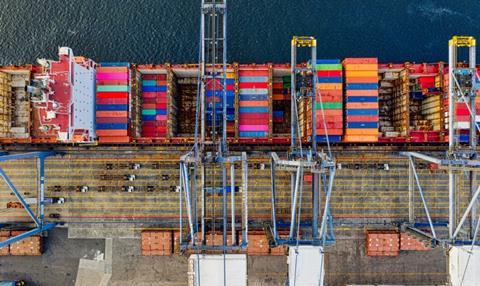A consultation on proposals to introduce charges at Border Control Posts (BCPs) in England has been launched by the UK Government. This is ahead of the planned implementation of full animal and plant health checks on commercial EU imports from 31st January 2024.

The four-week consultation will invite industry views on the introduction of charges for animal imports and commercial plant products from the EU from next year to support the introduction of biosecurity measures.
Government said that the consultation aims to ensure a fair and proportionate approach to a future charging system at Government-run Border Control Posts, whilst keeping the UK safe from threats like African Swine Fever.
The Government announcement stated: "Strong import controls are fundamental to ensure that we can protect the UK’s food supply chain, our food and farming industries, and our natural environment from biosecurity risks. Failing to do this risks a much bigger impact for people later – for instance, losing the ability to export pork due to African Swine Fever would cost the economy £567 million."
Starting next year, documentary, risk-based identity and physical checks will be introduced on some commercial goods arriving from the EU. Products including medium-risk animal products, plants, plant products, and high-risk food (and feed) of non-animal origin could all be selected for Sanitary and Phytosanitary (SPS) checks. These checks will take place at BCPs. Inspections of live animals from the EU will continue at destination until there is infrastructure in place to facilitate checks at Government-run BCPs.
The details of new regulations and procedures were laid out in the draft Border Target Operating Model, published in April this year. The draft also outlined a new risk-based categorisation system for imports, ensuring a targeted approach which minimises the need for unnecessary checks.
What does Defra's consultation on BCPs charges entail?
Defra is consulting on a Common User Charge to recover the operational costs of BCPs run by the Government in England. The UK Government is working closely with the Devolved Governments on charging policy and is working towards extending these arrangements to cover other Government-run BCPs within Great Britain in the future.
The flat rate charge would be levied on every consignment eligible for SPS checks entering Great Britain through the Port of Dover or Eurotunnel Le Shuttle. Government said that this charging model is designed to keep costs as low as possible, minimise impact across all businesses and to ensure that small businesses are not disproportionately affected. Charges would only be applicable for BCPs run by the Government as privately-run BCPs will set their own charges to cover inspection costs.
The proposed implementation date for the Common User Charge is April 2024 and the consultation welcomes feedback on this date.
In its announcement, the Government said: "We are aware that businesses face a range of global supply chain pressures and will therefore consider the implementation date in light of broader economic conditions."
Biosecurity Minister Lord Benyon said: “Biosecurity controls on goods imported into the UK are vital to safeguard and improve our high biosecurity standards. Through this consultation, we can ensure that a fair and proportionate approach to BCP charging is taken.”
More information about the consultation can be found here.
This story was originally published on a previous version of the Meat Management website and so there may be some missing images and formatting issues.















